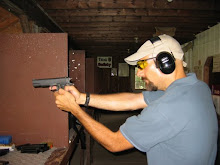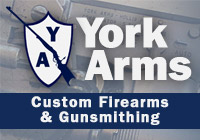We'll tackle these one by one. For the first question, it's going to be a compromise between weight and durability. The most important thing, when selecting a decent gun safe, is to buy one at least three times as large as you think you'll need. In my case, I'd be better off moving into an old missile silo... Seriously, though, when checking out a safe for firearms, always err on the side of the larger safe.Got any advice on gun safes? In particular, since I may need to move it at some point, this line seems attractive:And how about ammo storage? How do you store large quantities of it in the People's Republic of Mass?
If the safe might need to be moved, we're going to exclude the half-ton behemoths and two-story Gargantua. Something that weighs as much as a small car and needs specialized equipment to maneuver into place isn't going to fulfill the stated requirements of this exercise. Therefore, something lighter - and therefore less secure - will need to be chosen. In this instance, I'd recommend looking for something that can be bolted both down to the floor and up against a wall.
One of the first stops is Stack-On, which offers anywhere from basic locking metal gun cabinets through full-protection safes. Their metal cabinets do not offer fire or water protection, and minimum protection against theft. These are really just meant to stop the casual thief or opportunist, as well as to keep curious hands off one's firearms. These are decent if you've got additional security in place like a secure room; otherwise, don't depend on them for anything other than keeping bored teenagers out.
The next step, middle-of-the-road entry are safes from companies like Sentry - they've got a good line of entry-level (read: cheap) safes up through fire and water proof safes that will hold three dozen long guns. Even these entry level safes will provide a decent measure of protection against theft, with hardened metal locking lugs and concealed hinges. These will obviously cost more than a metal gun cabinet, but even the highest levels should be well within the reach of the average gun owner.
Lastly, the premium safes such as Liberty or Fort Knox offer the highest levels of protection against theft and fire. This protection, obviously, comes at a cost; these safes often cost what many of us have spent on good used cars - and they're worth every penny. If you've been saving up for a good gun safe, these are your best options - the first two types are good and better, respectively, but eventually you'll want a serious safe for your serious firearms. These brands aren't cheap, but neither are your favorite blasters, right?
In response to the second question, the law in MA is actually a fire code regulation subject only to a $100 fine and a month in jail if one fails to secure ammunition. Any locking container or closet will suffice; if you store your ammunition in a hall closet with a lock on the door that meets the technical criteria. Realistically, it's a good idea to have a decent ammo locker to keep all ammunition in as a matter of course - especially given how expensive ammo is lately!
Any other safe recommendations for our anonymous friend?
That is all.







7 comments:
Stack-on is good. I recommend adding weight (dumb bells, dry bricks, or bags of dry sand), for the bottom of the safe. Adding a hundred pounds of weight to the safe will deter theft. When you need to move the safe, you can move the weight (because you can get inside the safe). It is a compromise as to how much height is left over for your rifles.
Just remember to use dry sand/whatever. You don't want your guns to rust.
If I need to add weight, then clearly I don't have enough ammo! Gotta run to Academy, honey! It's all about safety.
Jay is being conservative on three times the size you will need. I've got three gun safes now. And they are all full!
The security of any safe can be drastically improved by bolting it securely, either to the floor or to the studs.
Wow, you have to lock up your ammo? Boy, I'd be in some trouble, I'd be looking at your missile silo idea.
May I suggest that instead of one very large gun safe, several smaller ones is actually a better choice? Consider:
1) You can position them in smaller spaces, in different rooms. If a thief finds one and empties it, or breaks through a wall to drag it off, he may well miss the others.
2) You can move each small safe much more easily (if necessary) than you can move one large safe.
3) If you have to get the safe(s) through doorways, or up or down stairs, smaller units are much more maneuverable.
4) If you bolt them down and/or add weight to the base, a small safe is just as secure as a larger one;
5) You won't be able to buy and/or install a properly secure safe anyway. They cost in the high four to mid five figures, and are too heavy for domestic floors. What we refer to as 'gun safes' are, in fact, RSC's (Residential Security Containers), which offer limited protection, but aren't even close to that offered by genuine safes. I wrote about this on my blog some time ago:
http://bayourenaissanceman.blogspot.com/2008/10/safe-storage-of-firearms.html
Hope this helps.
On ammo storage law penalty- any infraction, even a misdemeanor, that carries a penalty of possible jail time stands as a possible disqualification for your LTC/FID. That's a pretty severe penalty in my book.
Check out this thread on NES.
I have one of those cheep <$100 safes and it has withstood a break in. It has the scratch/tool marks to prove it. If you need ammo storage try surplus ammo cans. People have cooked off ammo in those without any fragments leaving the can. That and you can buy locks for the .50 cal cans.
My solution is not the best but it's cost effective (cheap) and easily movable if necessary.
THOTpd
Post a Comment